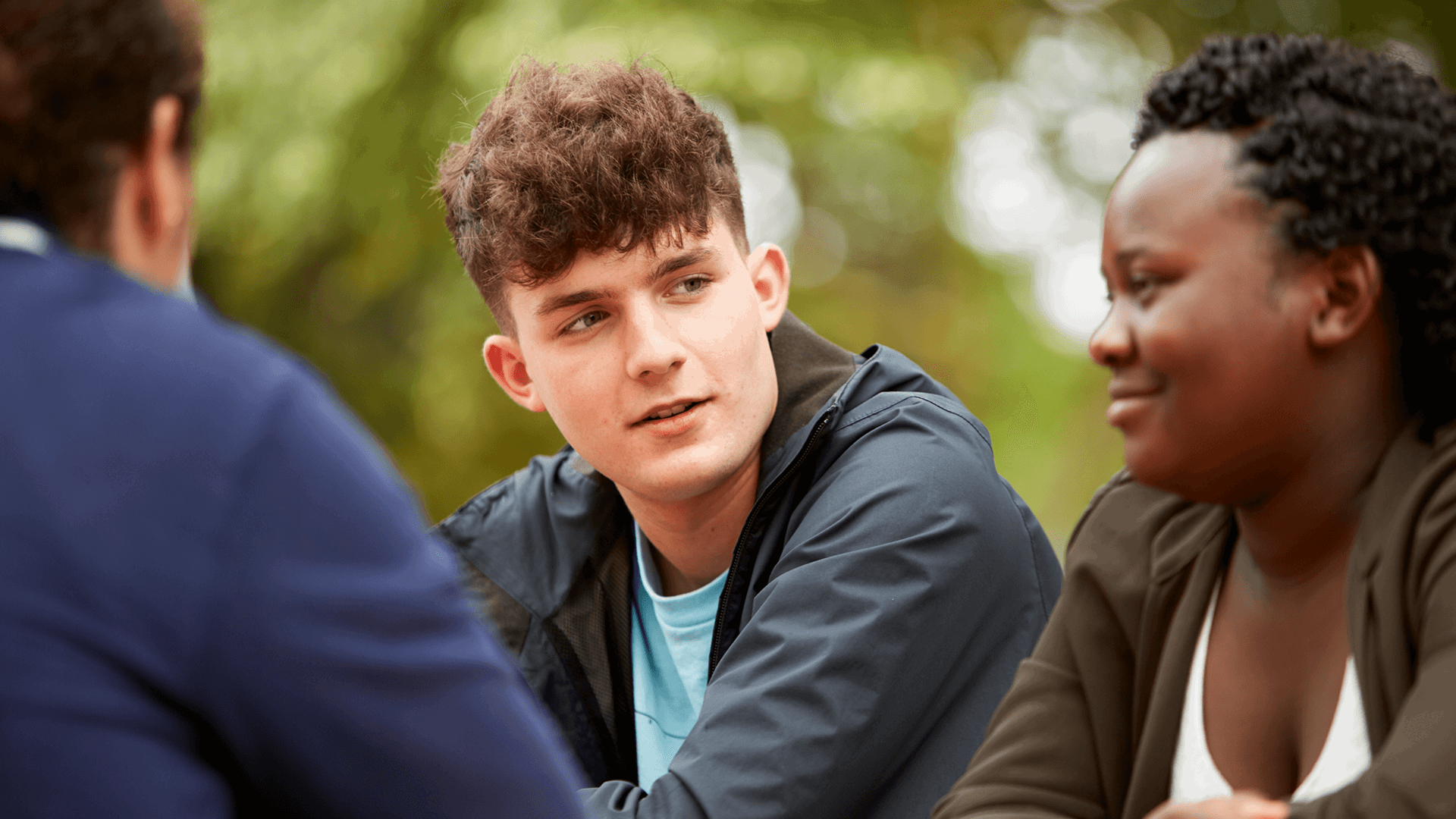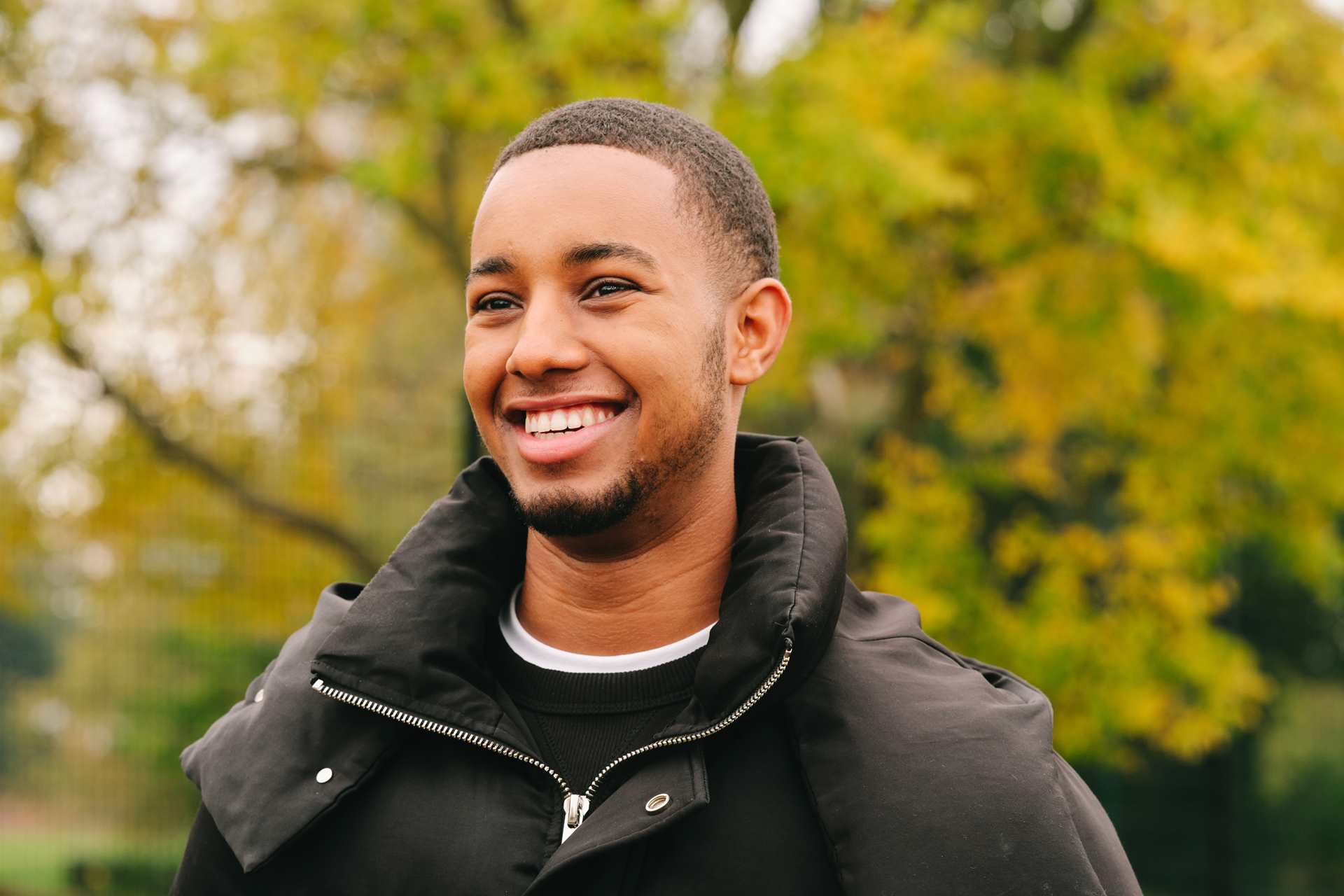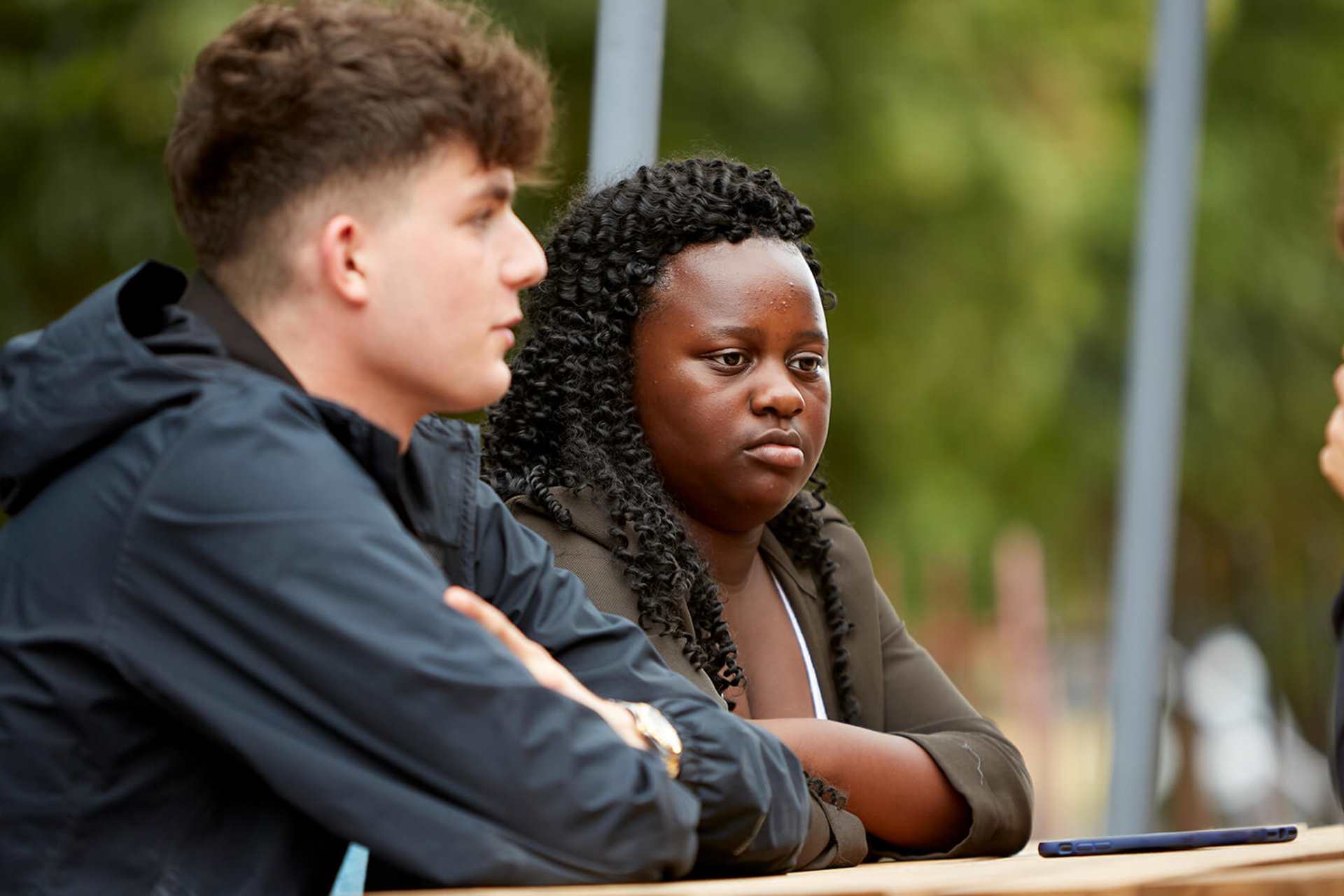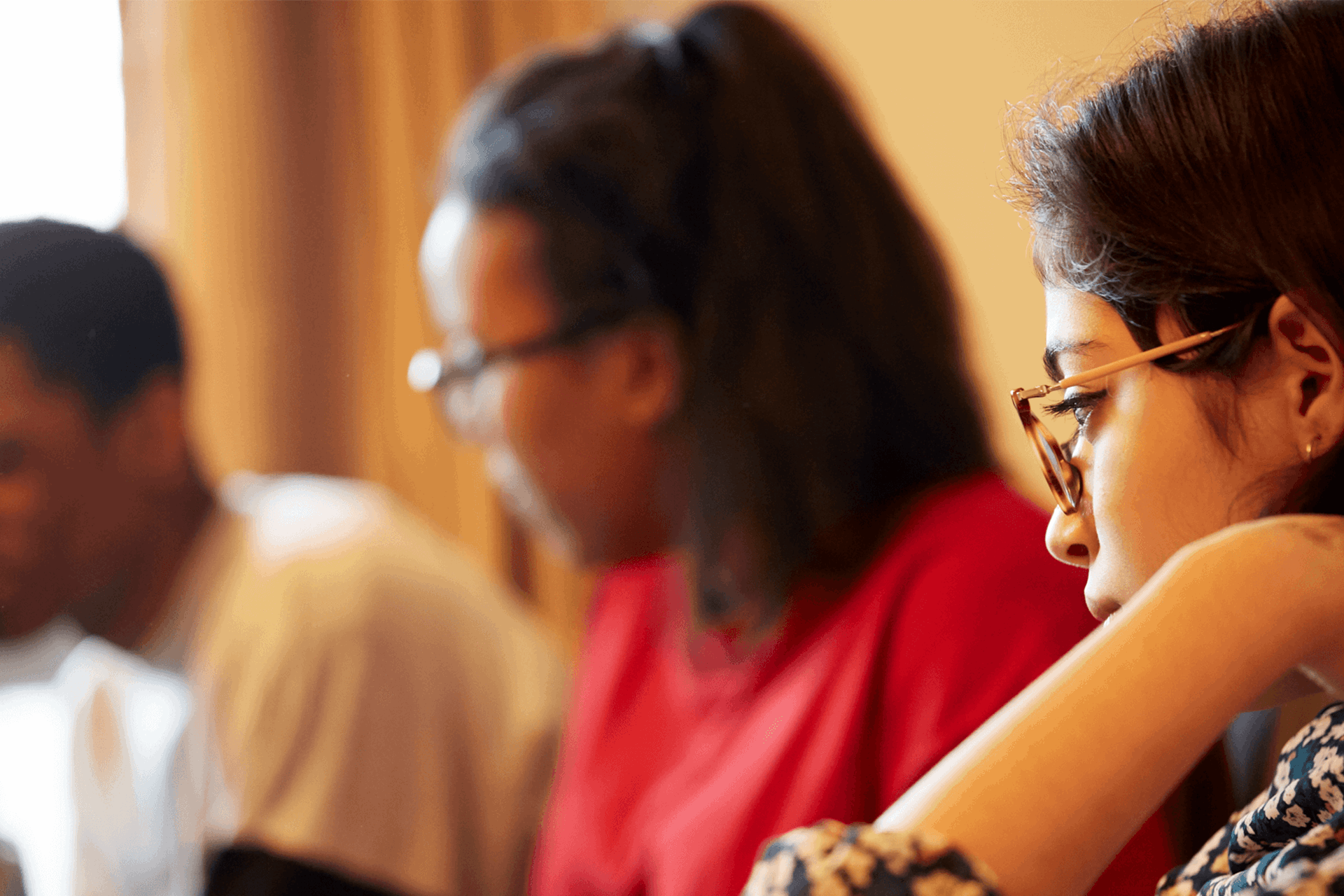Topics mentioned: gender and mental health, eating problems, body image
About: Charlie, 20, shares his experience of gender dysphoria, body image and finding support for his eating disorder as a trans man.
I noticed an internal voice compelling me to eat less, like a persuasive salesman that promised the solution to my problems.
Growing up, I spent a lot of time fixating on my body and how it conflicted with my identity. There is a sense of powerlessness when you struggle with gender dysphoria from a young age, because very little can be done to help.
In the UK, gender affirming treatments are inaccessible until age 18, and it often takes more time than this due to extremely long waiting lists for trans-specific clinics. For me, this led to feelings of being out of control that manifested as an eating disorder.
My story
From a young age, I struggled with food. Puberty was a traumatic time because my body began changing in ways that felt completely at odds with how I saw myself.
It led to me developing gender dysphoria and becoming severely anxious, withdrawn, and depressed. I was 11 the first time I noticed an internal voice compelling me to eat less, like a persuasive salesman that promised the solution to my problems.
Puberty was a traumatic time because my body began changing in ways that felt completely at odds with how I saw myself.
With every major life change I went through, the voice intensified. This was especially true when I came out as trans at 13. It was incredibly freeing to start living life as my true self, however, I knew that there was a very long road ahead of me to begin medically transitioning.
Coming out had also left me vulnerable to transphobic abuse that made school life unbearable. Just after starting college, my eating began drastically affecting my ability to function. I was referred to a psychiatrist who diagnosed me with “other specified feeding or eating disorder” (OSFED), specifically atypical anorexia.
At my worst, I felt like I lost all sense of myself. I was physically weak and exhausted. My behaviour turned bizarre and out of character. All I thought about was food, weight and how “feminine” I thought I looked. Life was miserable, and I was desperate for change.
I taught myself to cook, which was vital in changing how I viewed food. The voice slowly became quieter.
When I reached out for help, I was turned away from the CAMHS eating disorder service. They told me they could not help because of my issues around gender dysphoria. In place of actual support or treatment, I was told I should consider starting to eat three meals a day.
At the time, I took this as a sign that I wasn’t “sick enough,” but I now realise that I was not the problem. Instead, the issue lies with services that are unequipped to deal with anyone who falls outside of the cisgender female archetype of what eating disorders look like. For a while, I thought I would never recover.
My eating disorder felt deeply ingrained in my life and intertwined with who I was, and I believed I would be nothing without it. Fortunately, I found help outside traditional care routes through online services, a local LGBT charity, and dialectical behaviour therapy (DBT).
Alongside this, I taught myself to cook, which was vital in changing how I viewed food. The voice slowly became quieter. Now, nearly five years since my diagnosis, I consider myself recovered, and I am continuing to discover who I am without my illness. Recovery has been the most beneficial thing I have ever done for myself.
Being trans can be a barrier to adequate care
Recently, research has shown that eating disorders have a prevalence rate of around 34-38.8% in transgender individuals. The rate of eating disorders in the general population is estimated to be 9%, meaning they are nearly four times as common in trans people.
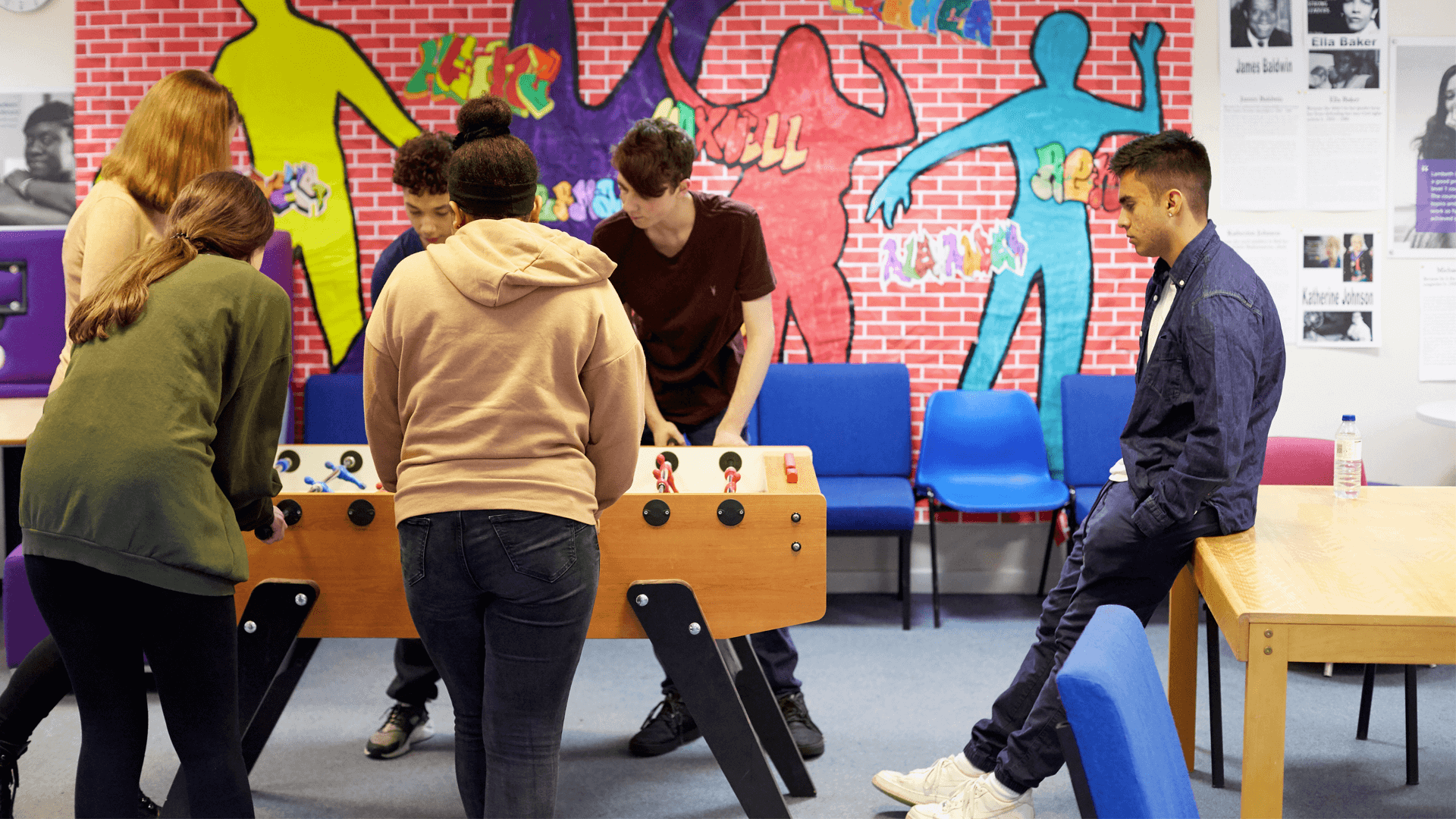
There are numerous different pressures that trans people experience and can lead to the development of an eating disorder. There is a high rate of eating disorders among people who experience gender dysphoria, and studies have found links between the stress associated with experiencing prejudice and the development of eating disorders.
Despite this, there is a severe lack of understanding from medical professionals in treating trans patients.
The rate of eating disorders in the general population is estimated to be 9%, meaning they are nearly four times as common in trans people.
I am far from the only person who has struggled to access appropriate care. There are countless reports online from transgender people talking about mistreatment from healthcare providers. Many have stories about how they were misgendered, patronised, and not taken seriously.
Considering how many trans people struggle with eating disorders, it’s unacceptable that so many clinicians cannot, or will not, provide proper care.
My advice for anyone struggling
If you're struggling with gender dysphoria and eating problems, you are not alone.
Personally, I received the most beneficial support from my LGBT youth worker and BEAT’s online chat service. These are far from the only options, so try researching what help is available in your area.
Eating disorders are inherently secretive and isolating illnesses, so talking about your struggles may feel like it goes against all your instincts, but it is worth it. Having another person available to support you can make things feel much less overwhelming.
If hormones and surgeries are something you want to pursue, you need to be both physically and mentally stable to start. Keeping goals like these in mind can be a great starting point for helping you to choose recovery.
More information and advice
We have tips and advice to help you find the support you need. Take a look at our guides.
Where to get help
However you're feeling, there are people who can help you if you are struggling. Here are some services that can support you.
-
Beat
Offers information and support for anybody affected by eating disorders.
One-to-one web chat available. They also run a range of online support groups, which are all fully moderated and anonymous.
Enter your postcode in the HelpFinder to see what eating disorder support is available in your area.
View their information on helpline accessibility and confidentiality.
- Opening times:
- 365 days a year - weekdays (9am - 8pm); weekends (4pm - 8pm)
-
MindOut
A mental health service run by and for lesbians, gay, bisexual, trans and queer people with experience of mental health issues.
Instant web chat service also available (hours vary).
Runs in-person peer support groups in Brighton.
-
Mindline Trans+
An emotional and mental health support helpline for anyone identifying as transgender, non-binary, genderfluid (or their family members, friends, colleagues and carers).
- Opening times:
- 8pm - Midnight, Mondays & Fridays
